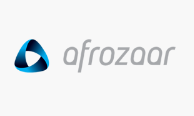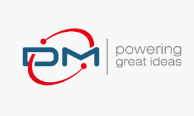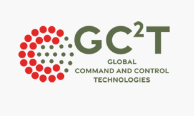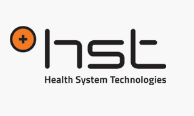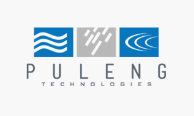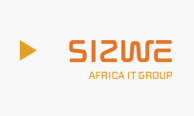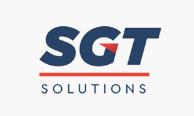Audit and risk committee report
Dear Stakeholder,
On behalf of the audit and risk committee, I am pleased to address you and report on the committee’s activities for the financial year ending 31 August 2020, as recommended by the King IV™ Code, the JSE Listing Requirements and the Companies Act.
The audit and risk committee was busy and active during the reporting period, holding eight formal meetings with an overall attendance rate of 85%. The meetings were attended by the five non-executive directors, all of whom have proven to have the requisite business acumen, skills and experience to contribute meaningfully to the affairs of the committee, as well as executive directors, the internal auditor and representatives of the appointed external audit partners, who were invited to contribute as required.
Before I dive into reporting on the activities and the outcomes delivered by the committee, I would like to reiterate the role, purpose, lines of accountability and key functions the committee performs. The audit and risk committee has an independent role with accountability to both the Board and shareholders. It does not assume a management function, which remains the responsibility of the executive team, but rather provides an independent oversight of the effectiveness of the Company’s assurance arrangements and the integrity of the Group’s annual financial statements and other external reports. Additionally, we assist the Board in carrying out its duties relating to accounting policies, internal controls, financial reporting practices and identification of significant
risk exposure. The committee has the power to make decisions relating to its statutory duties and is accountable for its performance in this regard.
We believe that timeous, direct and honest communication is instrumental to the committee’s ability to effectively deliver on its mandate. Thus, we maintain unrestricted, continuous interaction throughout the year with the executive management team and the internal audit unit, whose head reports directly to me. We also work closely with the external audit partners who are in direct contact with myself and the other members of the committee continuously. Finally, I am available at the Annual General Meeting to answer any questions that shareholders in the Group may have.

The committee executed its responsibilities pursuant to paragraph 22.15(h) of the JSE Listing Requirements during the reporting period. The most notable committee deliberations and inputs in 2020 pertained to the following topics:
FINANCIAL REPORTING
One of the key responsibilities of the audit and risk committee is the review and oversight of the Group’s financial reporting, application of accounting policies and publication of interim and annual financial statements in accordance with IFRS, JSE Listing Requirements and the Companies Act. During the reporting period the committee reviewed and approved the publication of Group and Company Annual Financial Statements, as well as re-stated Interim Results for the periods ending 28 February 2018 and 28 February 2019.
The committee is satisfied that all published financial results were prepared in accordance with the framework concepts and the measurement and recognition requirements of IFRS, the SAICA Financial Reporting Guides and Financial Reporting Pronouncements, as issued by the Financial Reporting Standard Council. We considered the appropriateness of the accounting policies adopted by the Group, the treatment of significant transactions and the processes implemented in the preparation of the financial statements. We are satisfied that the statements fairly represent AYO’s financial position for the period, implementing the updated IFRS requirements.
The committee further reviewed and accepted the 2020 Integrated Annual Report as a document of the required quality and integrity.The new IFRS requirements that came into effect in 2018 and were adopted by the Group in the 2019 financial reports, namely IFRS 9 and IFRS 15, had no major deviations from our adopted classification of financial assets and thus, had no material effect on our performance results. During this reporting period, changes that became effective in the framework, affected IFRS 16, which sets out the principles for recognition, measurement, presentation and disclosure of leases. On transition to IFRS 16, the Group measured liabilities at present value and made no adjustments to its opening balance of retained earnings on 1 September 2019, which resulted in a significant increase of the financial position as of opening date. Detailed explanation of this effect is included in the Group’s Reviewed Preliminary Condensed Financial Results, which are available on the Company’s website.
EXTERNAL AUDIT
Following a positive and productive business relationship with audit partner BDO South Africa Inc., spanning over 22 years, the Group sought fresh view and input and set out in pursuit of a new external audit partner. The committee felt that in line with our Group’s mission to promote and support small and medium South African businesses and in the interest of our business’ integrity, the opportunity should be opened to a transformed, progressive, local auditing partner, provided it complies with the appropriate and requisite stringent professional requirements. After careful consideration and evaluation, an appointment was made to Thawt Inc., under the leadership of Mr Afzal Khan, working in association with Crowe JHB Inc led by Mr Gary Kartsounis.
The new partnership progressed well in its inaugural year with the external auditing partner team performing reasonably and professionally. Both Mr Khan and Mr Kartsounis interacted extensively with the committee, attending several committee meetings, providing valuable input and guidance in the preparation of the Group’s financial statements. The committee was satisfied with the scope of services and level of professionalism contributed as well as the costs of services rendered by the two companies.
INTERNAL AUDIT
As any other considerable business organisation, the AYO Group relies on internal control mechanisms and systems, designed to assess the adequacy of governance structures, provide assurance as to the reliability and integrity of financial reports and manage risk. In the past, this function was fulfilled by the head of internal audit of our parent company – AEEI. However, our rapid growth since listing has resulted in an increased scope for the internal audit function and associated requirements for our internal audit entity. Thus, a formal internal audit team was established on 1 March 2020 with the head of the unit, Mr Sanda Mnyazi, working closely with and reporting directly to me.
The internal audit unit is facing a huge amount of work, starting with drafting a formal unit charter, reviewing and assessing an extensive library of governance framework documents, preparing a detailed internal audit plan, risk assessment and evaluating the processes and mechanisms in place across the various operating companies in the Group. As a fairly new unit whose function was somewhat inhibited by the remote working protocols adopted in the second half of the financial year, internal audit did not provide much input to the external audit partner in this reporting period. With view of the nature and scope of the work to be done, the committee has approved additional resources to be recruited by the team and we look forward to closer engagement between the three structures in the next financial period.
RISK MANAGEMENT
The governance of risk has been delegated to the committee by the Board and is a key deliverable for the unit. During the year, the committee once again reviewed the Group’s Risk Management Policy, Risk Appetite and Tolerance Statement as well as the Charter of the Audit and Risk Committee itself, and is satisfied that the above documents are fully aligned with all relevant legislation, the JSE Listing Requirements and the King IV™ Code.
The committee further reviewed the Group budget and strategy for the 2021 financial year with the view of early detection and identification of possible material risks. As the AYO Group has reached a state of maturity, it is envisioned
that future revenue growth will be driven primarily by new acquisitions, which inherently have a higher associated level of risk. Vunani Corporate Finance was engaged to perform in-depth valuations of the Group’s current portfolio of investments.
RELATED PARTY TRANSACTIONS POLICY
The committee, in consultation with our corporate sponsor, Vunani, developed, approved and adopted a Related Party Transactions Policy during the reporting period. The AYO Group has grown rapidly in a short amount of time since listing, while itself belonging to a larger family of organisations through its parent company network. Thus, the amount and complexity of transactions the Group enters into with various related parties, increasingly provides basis for variances of interpretation in certain IFRS standards. The committee identified this as potential legislative risk and resolved to formalise AYO’s approach and classifications of such complex transactions. The committee envisions to regularly assess and update this new policy as well as to facilitate annual refresher workshops for directors and key staff going forward, to ensure full compliance and accurate disclosure of such transactions in future.
Finally, the committee reviewed and assessed the adequacy, expertise and experience of the Chief Financial Officer, as well as the financial department, as per paragraph 3.84(g)(i) of the JSE Listing Requirements. 2020 was the second year and first full reporting period of Mr Tatenda Bundo’s tenure in the executive role. We are very pleased with the progress Mr Bundo has made in this short space of time in terms of the efficiency and accuracy of the Group’s financial reporting processes and delivery. We are of the view that Mr Bundo is a professional of the highest standard and is well-positioned to fulfil this important role.

Rosemary Mosia
Chair of Audit and Risk Committee
22 December 2020
AUDIT AND RISK COMMITTEE MEETING STATISTICS


